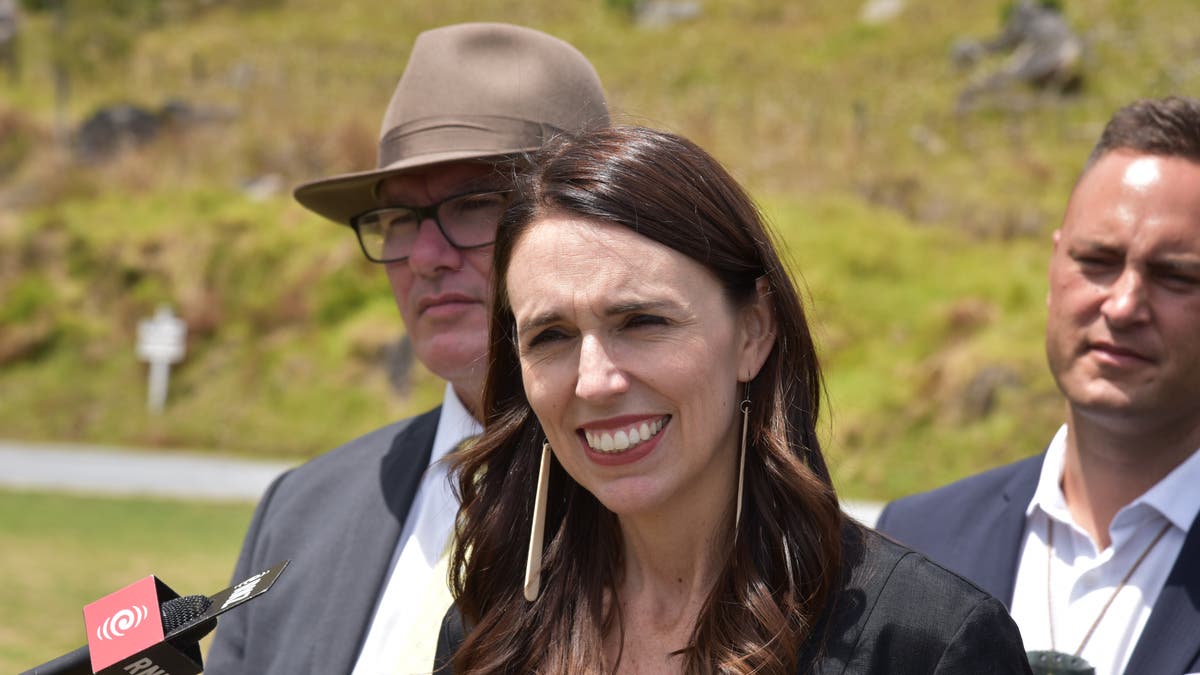
Drastic measure: New Zealand’s largest city locked down – due to 3 (!) Coronavirus cases
Radical scale
Lockdown in New Zealand’s largest city – due to 3 (!) Coronavirus cases
‘Hard and fast’: In Oceania, major cities are locked down due to fewer Covid-19 cases. In New Zealand, now back to Auckland.

New Zealand Prime Minister Jacinda Ardern returns Auckland to lockdown.
When New Zealand Prime Minister Jacinda Ardern talks about “hard and fast” action, she means it. It proved this in late March of last year when it closed the borders and pushed the country into a tight lockdown for seven weeks. It demonstrated this in mid-August when the country’s largest city was locked down from the rest of New Zealand for two and a half weeks due to four new cases of Covid 19, including Auckland, and sent it to a second lockdown. And now you prove it again.
On Sunday evening local time, the Social Democrats announced three new cases in Auckland – that’s after there have been almost no new infections among the country’s population in months.
So it struck 1.7 million people in Auckland again. From midnight to Wednesday evening, the second highest of four warning levels applies. This means: The city will be closed again, and residents will have to stay home. There are controls at city limits; People are not permitted to enter or exit except in exceptional cases. No more than ten people are allowed to meet. Museums, libraries and other stores are closed, and children are not supposed to go to school. What happens next depends on how the outbreak developed.
New Zealand has an “elimination strategy”
The rest of New Zealand is escaping a black eye for now – as it was in August. The third highest alert level is now applied in most parts of the country. It can meet up to 100 people, otherwise there are few restrictions (still).
“We have done it before and we will do it again,” the prime minister told residents on Sunday evening. Your goal is to prevent the virus from spreading through the population and bring the outbreak back to zero as quickly as possible. The government’s strategy is to eliminate Covid-19.
As an island nation in the South Pacific, the country naturally enjoys certain benefits, but the authorities do their best to minimize the remaining risks. Borders for foreign guests have been closed for nearly a year. Returnees must go to a secluded hotel for two weeks after their arrival.
Australia is working to adapt procedures
The strategy has worked relatively well so far. New Zealand is one of the most successful countries in fighting the epidemic. 25 people have died from Covid-19 so far, and the virus has carried 2,300 people. Residents can enjoy summer in the Southern Hemisphere for several months with almost no restrictions.
Meanwhile, its larger neighbor, Australia, has followed a similar path. After an outbreak there in Melbourne, the second largest city, in June and July, and authorities watched too much to act for too long, the area of more than five million people was locked down for nearly four months. It has been one of the strictest and longest lockdowns in the world. Measures passed through the bone.
The initial initial intervention and the Oakland view, thanks to the rapid lockdown in August, that things were quickly returning to normal, led to a rethink in Australia. For example, a few weeks ago, authorities in Perth briefly imposed a lockdown on the area due to one new case – after there had been no new case there for more than ten months.
Melbourne has also revised its strategy: A new outbreak was announced there last Friday, and the city is now in fresh lockdown – initially until Wednesday. This also affects the Australian Open, where the world’s tennis elite have been banging balls around their ears for a week. Thousands of spectators were allowed to be before, but the pros are now playing again in front of the empty stands.
The direction of focus is now evident on both sides of the Tasman Sea: it is better to “step in forcefully and quickly” than lukewarm measures. So you should always anticipate new closures.

“Reader. Travel maven. Student. Passionate tv junkie. Internet ninja. Twitter advocate. Web nerd. Bacon buff.”
